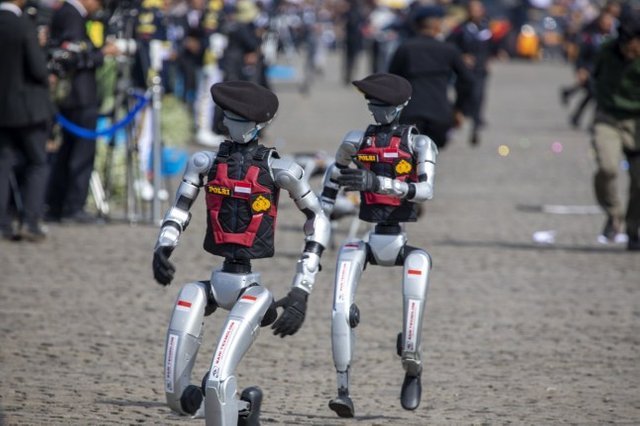The new Indonesian police
The new Indonesian police

And the future described by fiction is shown once again.
Imagine walking down the street and encountering a police officer who does not feel afraid, does not blink and does not rest, in Indonesia, this futuristic scene became reality, the country has just launched a police force made up of manual robots and but robots ready to patrol the streets, hunt down drug traffickers and even control riots.
A demonstration of how technology is taking control of public safety, but also raising an alarm about how far we can trust machines with so much power, of course, those who follow me here know that this type of scene at this very moment is just a glimpse of how things are going to be from now on.
These robots are not yet capable of working without human supervision, but they are already true walking surveillance platforms dressed in official uniforms and good black, they walk, run, wave and occupy positions that would normally require trained humans. Some have advanced facial recognition systems capable of identifying suspects in crowds, while the but robots named I-k9 detect drugs, explosives or dangerous chemicals in risk areas.
All this is coordinated by a mixed AI and human center that collects data in real time, feeding a patrol network that covers everything from the chaotic traffic of Jakarta to the most remote areas where drug trafficking is hidden.
Image source:
The idea is simple.
Follow my publications with the latest in artificial intelligence, robotics and technology.
If you like to read about science, health and how to improve your life with science, I invite you to go to the previous publications.
You want to win, play HARRY-RAID
If you like to read about science, health and how to improve your life with science, I invite you to go to the previous publications.
You want to win, play HARRY-RAID